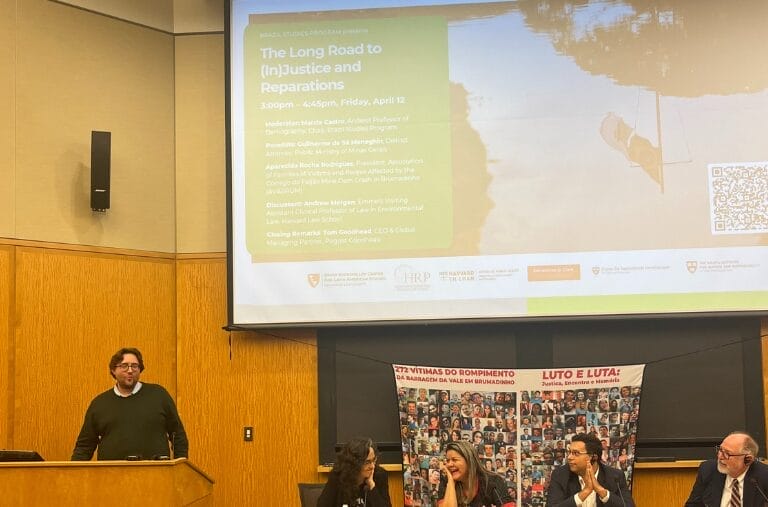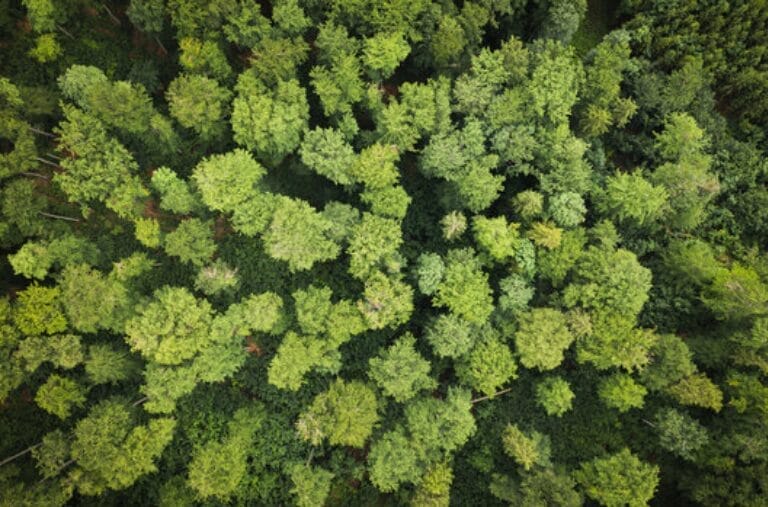On 28 December 2021, the High Court of South Africa handed down a ruling (the ‘Case‘) interdicting Royal Dutch Shell (Shell) from carrying out three-dimensional seismic testing for oil and gas.[1]
The company intended to begin prospecting along 6011-sq-km of the ecologically diverse and sensitive marine environment of South Africa’s Eastern coastline. The Case and its reasonings are an essential step in South Africa’s environmental and human rights jurisprudence, as well as within the global framework of legal intervention against corporations in climate change matters.
Context and Summary of the Case
The applicants[2] are non-profit companies, natural persons and a communal property association representing those fighting against, and affected by, climate change, acting in the public interest and in the interest of protecting the environment. The matter was brought against the relevant respondents[3] comprising Shell entities and government Ministers that agreed to the seismic testing.
The success of this Case followed an earlier ruling on 3 December 2021 that denied an urgent interim-interim interdict. The court struck down the application because there was insufficient evidence to prove Shell’s actions would cause irreparable environmental harm, as asserted.
In the Case, Judge Bloem considered the following questions of fact and law.
(i) Do the applicants at least have a prima facie right, even if it is open to some doubt?
The Judge was satisfied that the applicants established prima facie rights, and by virtue of the applicants’ customary rights, Shell owes them a duty of consultation. The Judge found that the applicants had a prospect of success in asserting that their (and the public’s) statutory rights are engaged through Shell, failing to acquire the relevant environmental authorisations relating to the National Environmental Management Act[4] .[5]
Section 24, the South African Constitution bestows upon ‘everyone‘ the right to ‘an environment that is not harmful…‘ and to ‘have the environment protected’. Further, sections 30 and 31 codify that ‘everyone‘ has the right ‘to use the language and to participate in the cultural life of their choice’ and to belong to, enjoy, practice, form, join and maintain cultural, religious and linguistic communities.
By virtue of these rights, the interests of the traditional communities[6] living along the affected coastline for centuries must be meaningfully engaged, considered, and consulted. Evidence submitted by the applicants tells of the traditional communities’ ancestral connection to the land. ‘They adopt the attitude that, not only does the land belong to them, they also belong to the land. That is because the land is central to their identity.’ [7] The communities rely on the fish from this region as a food source[8] and income, as well as believing in the healing properties of the land and sea.
It should be emphasized that the local communities are concerned about climate change- noting their experiences of significantly more unpredictable weather patterns, with more extreme weather events and rising sea levels.[9]
Local indigenous communities regard conservation and sustainable harvesting of resources from the land and sea as imperative, using traditional practices and skills handed down over generations. Following customary practices and indigenous knowledge, they do not take too much from the sea, only taking fish of a certain size and have developed sustainable fishing practices.[10]
Meaningful consultation entails providing affected communities with the necessary information on the proposed activities and making informed representations.
The appropriate level of engagement in each matter will be context-specific, taking into account various factors such as the objectives for engaging with stakeholders, the social profile of stakeholders, levels of literacy, the scale of the proposed activity, number of people involved, resources available for conducting the process, legislative requirements and the norms and societal values defining a particular context.[11]
These communities are at the heart of the prospective area and will be affected directly by Shell’s activities. On the facts, Shell relied on advertisements placed in four (online / paper-based?)_ newspapers to notify the public about the proposed project, providing details of the consultation process. The notifications were published in English and Afrikaans, not in isiZulu or isiXhosa, the languages spoken in the traditional communities.
This process, therefore, excluded illiterate persons and those who did not speak the published languages. The approach further disregarded the communities’ custom of seeking consensus. Shell considered it adequate to speak only to the “Kings” of communities and assumed that those Kings spoke on behalf of their people. In contrast, the relevant traditional communities rely on strict rules about consultation, emphasizing the importance of seeking consensus and avoiding the imposition of top-down, linear decision-making.[12]
The Case found that the consultation process in question that requires Shell to meaningfully consult with the communities and individuals impacted by the seismic survey and exploration right was inadequate and substantially flawed. Accordingly, Shell’s exploration right was unlawful and invalid.
(ii) Would there be a reasonable apprehension of irreparable and imminent harm of the right if the interim interdict is not granted?
The applicants adduced expert evidence, presented in reports and affidavits through objective facts. The court held that, on those facts, a reasonable person would regard the evidence as indicating that, on a balance of probabilities, without legal intervention, there is a real threat that Shell’s exploration would irreparably harm marine life. Shell failed to present any expert evidence to neutralize the applicants’ evidence.[13]
(iii) Does the balance of convenience favor the granting of the interim interdict?
Shell argued that it would suffer total losses exceeding R1 billion due to terminating the survey and the subsequent loss of the exploration right. The court held that the respondents’ financial implications had resulted from their own failure to consult the interested and affected parties adequately and that such financial loss could be weighed against the constitutional infringement. An anticipated financial loss cannot justify the breach of the applicants’ constitutional rights, which protect their livelihoods,
well-being, cultural practices and spiritual beliefs. As such, the balance of convenience must favor the protection of those rights.[14]
(iv) Is there any other satisfactory remedy available to the applicants?
It would be open for the applicants to approach the relevant government Ministers to exercise their powers to cancel or suspend the respondents’ right to explore. However, on the facts, Mineral Resources and Energy Minister, Gwede Mantashe, condemned ‘unrelenting attacks’ on oil and gas development in South Africa, criticizing objections to the seismic survey ‘as apartheid and colonialism of a special type, masqueraded as a great interest for environmental protection.’ Since the Minister had delegated an affidavit in the Case expressing his position favoring the exploration, it would be little use for the applicants to convince the Minister to exercise his powers to stop Shell. Accordingly, no other satisfactory remedy seems available to applicants.
Local and Global Impact
The Case has been celebrated and welcomed by environmentalists and communities, locally and globally. The protection of marine wildlife such as dolphins, seals, penguins and endangered humpback whales- that would be affected by the seismic testing- is critical to sustain and preserve the delicate ecosystems of the Wild Coast region.[15]
Beyond the apparent environmental protections and preservations, the Case represents an important celebration of constitutionally protected human rights both of those local traditional communities directly affected, as well as of all those who rallied together to promote awareness and protest Shell’s exploration rights.[16]
The court made clear that profit cannot prevail over cultural and religious rights and the environment, enshrined in South Africa’s Constitution. Customary law and local traditional communities’ indigenous rights and practices must be recognized and protected. Such communities are often marginalized, overlooked and exploited by big companies and abuse of civil power. The inequality of power dynamics favors those with the loudest voices, deepest pockets and formal decision-making capabilities. For example, it recently came to light that mining giant Rio Tinto failed to disclose that it authorized the disposal of hundreds of irreplaceable indigenous cultural relics of traditional Aboriginal owners.
The outcome of the Case follows a growing global awareness of and opposition to the exploitation of the environment by big businesses. Other pivotal decisions made against Shell in 2021 reflect a supportive jurisprudential intervention.
In January 2021, The Hague Court of Appeal found that Shell owed a duty of care as a parent company for claims relating to an oil spill in the Niger Delta.[17] Two weeks later, in the Okpabi case, concerning the same facts, the UK Supreme Court held that the Nigerian claimants had an arguable case in that Shell owed them duty of care as a parent company.[18] These judgments helpfully expose multinational parent companies to liability for environmental and human rights abuses.
On 26 May 2021, The Hague District Court ordered Shell to reduce its worldwide CO2 emissions by 45%, by 2030, in a ground-breaking decision. This decision marks the first time any court has imposed a duty on a company to act to prevent dangerous climate change.
In its interpretation of Shell’s obligations, the court considered the unwritten duty of care in Dutch tort law and other international ‘soft law’ instruments such as the OECD Guidelines for Multinational Enterprises and the UN Guiding Principles on Business and Human Rights as well as articles 2 (right to life) and 8 (right to respect for private and family life) of the European Convention of Human Rights.
The outcome extends the Urgenda[19] principles (requiring governments to take action against climate change) to a private entity, emphasizing companies’ (non-binding) responsibility to respect human rights and set policy accordingly.
In view of these rulings against Shell, judicial scrutiny over corporate behavior connected to climate change is seemingly growing. Although Shell has announced that it will appeal the Case, it must immediately comply with the judgment. Other similarly situated companies should expect to be bound by the same rules while civil society revels in this successful intervention.
These decisions breed hope for a global ripple effect. Big corporations should be increasingly held accountable for their business activities, which must consider and meaningfully engage the community and environmental impacts, in accordance with relevant local and international statutory and civil law duties.
References [1] The purpose of the seismic survey is to provide imaging of the subsurface to determine whether there might be energy reserves below the sea floor. The seismic vessel, the Amazon Warrior, will discharge pressurized air from its airgun arrays to generate sound waves which it will conduct the seismic survey. See the Case at para 6. [2] The seven applicants comprise of: Sustaining the Wild Coast NPC, Mashona Went Dlamini, Dwesa-Cwebe Communal Property Association, Ntsindiso Nongcavu, Sazise Maxwell Pekayo, Cameron Thorpe and All Rise Attorneys for Climate and the Environment NPC. [3] The five respondents are the Minister of Mineral Resources and Energy, the Minister of Environment, Forestry and Fisheries, Shell Exploration and Production South Africa BV and Impact Africa Limited and BG International Limited. (In 2020, Shell acquired a 50% stake in the offshore exploration right held by Impact Africa, a subsidiary of privately owned Impact Oil & Gas). [4] National Environmental Management Act, 1998 (Act 107 of 1998). [5] Whether or not Shell requires an environmental authorisation obtained under the National Environmental Management Act, will be considered by the court. [6] More information about how the local Amadiba community from Xolobeni on the Northern Wild Coast of the Eastern Cape took up their struggle to live sustainably, in terms of their Indigenous Knowledge Systems, can be found here - http://www.scielo.org.za/scielo.php?script=sci_arttext&pid=S0256-95072019000100004 [7] Shell Judgment at para 12. [8] 'Seafood forms a vital part of their diet. It contributes to their community having some of the lowest rates of hunger in the country.' Shell Case at para 13. [9] Para 15 of the Case notes that the Amadiba traditional community 'feel responsible for conserving the planet for themselves and humanity.' [10] See para 17 of the Case. [11] DEAT (2002) Stakeholder Engagement, Integrated Environmental Management, Information Series 3, Department of Environmental Affairs and Tourism (DEAT), Pretoria. [12] See para 25 of the Case. [13] See paras 33-73 of the Case. [14] See para 68 of the Case. [15] See an open letter to the President and relevant government Ministers by prominent South African marine scientists calling on the government to halt the survey, here - https://cer.org.za/wp-content/uploads/2021/12/open-letter-sa-marine-experts-final-2-dec-2021.pdf [16] South African environment groups demand an end to Shell exploration | News | DW | 05.12.2021 [17] Shell Nigeria aansprakelijk voor olielekkages Nigeria (rechtspraak.nl) [18] Okpabi and others (Appellants) v Royal Dutch Shell Plc and another (Respondents) (supremecourt.uk) [19] The Urgenda Foundation, together with 900 citizens, won the Climate Case against the Dutch Government, forcing it to take more measures against climate change. The Hague District Court, Urgenda Foundation v State of the Netherlands, NL:RBDHA:2015:7196 (24 June 2015).









